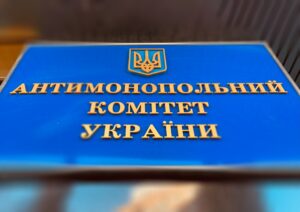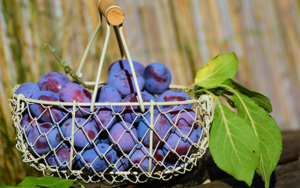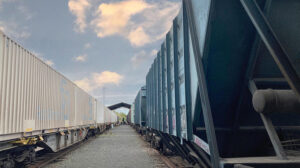
Yurmash (Kyiv), a company with foreign investment whose main specialization is the supply of foreign construction and road equipment, may supply five Euromash intercity buses (three of which are upgraded) to NAEK Energoatom for UAH 22.91 million, with an expected value of UAH 24.37 million.
According to a report in Prozorro, the company was the only participant in the tender for the purchase of buses, although the customer specified AR-TEMSA PRESTIJ SX buses (or equivalent) as the subject of the purchase.
Auto-Region, the exclusive distributor of Turkish Temsa buses in Ukraine, did not participate in the tender.
According to the documents provided, the Euromash B AC 6768 bus with improved equipment is 7.5 m long, designed for 29+1 seats with seat belts and a seat reclining system, equipped with a 2.97 L Euro 6 diesel engine.
In particular, the bus has an autonomous heater, air conditioning with individual deflectors for each row of seats on both sides.
Additional options, unlike the standard configuration, include USB sockets in the backrests of the front row seats, a microphone, an LSD TV, and a rear view camera.
A letter signed by the company’s CEO states that “the company will use only its own production facilities to manufacture the product,” while the localization certificate states that “the degree of localization is equal to or exceeds the degree of localization for the corresponding year” (in 2025, the law requires 25% localization), but the specific degree is not specified.
The company’s website and open sources do not provide information on the components used in Euromash buses.
Previously, the company offered Euromash (Dongfeng) pickups in tenders. The company is the official dealer of the Chinese Dongfeng in Ukraine.
The company’s website states that it was established in 2004 and is one of Ukraine’s leaders in the import, warranty, and post-warranty service of imported road construction and quarry equipment.
The company is the exclusive dealer of Hitachi construction equipment and an official dealer of BELL, Terex Finlay, Ammann, Furukawa, and Sullair.
According to opendatabot, the ultimate beneficiary of LLC with II “Yurmash” is entrepreneur Anna Pokotilova.
The company’s net income in 2024 increased 1.9 times compared to 2023, to UAH 507.6 million, with a net profit of UAH 3.6 million compared to UAH 0.9 million a year earlier. Before the war in 2021, the company’s revenue amounted to UAH 1.2 billion, and the number of employees was 457, compared to 162 the previous year.

The Antimonopoly Committee of Ukraine (AMCU) found LLC “Marxoll” (formerly LLC “Dryada Zakhid”) and LLC “Ligna Ukraine” guilty of collusion during their participation in two tenders for the purchase of plastic cassettes (with an estimated value of UAH 34,470,680.00) and the purchase of tags for marking timber (with an estimated value of UAH 26,534,070.00) held by the state-owned enterprise Lesa Ukrainy in 2023 and 2024, the press service of the agency reported.
The committee established circumstances which, taken together, indicate that the companies engaged in anti-competitive concerted actions with the aim of eliminating competition between them during their participation in the aforementioned tenders. The facts revealed showed joint and coordinated behavior by the companies in preparing for and participating in the tenders, as well as communication between them and the exchange of information, the statement said.
The AMCU recognized the actions of Markosoll LLC and Ligna Ukraine LLC as a violation of competition law under paragraph 4 of part 2 of Article 6, and Article 50(1) of the Law “On Protection of Economic Competition,” which led to a distortion of the tender results, and fined them a total of UAH 5,495,260.
The agency recalled that, according to the Law “On Public Procurement,” the basis for refusing to participate in a procurement procedure is the fact that a business entity (participant) has been held liable within the last three years for committing anti-competitive concerted actions related to the distortion of tender results.

A direct railway service between Kyiv and Bucharest will be launched in test mode on Thursday, Ukrainian Foreign Minister Andriy Sybiga said.
“Direct rail service between Kyiv and Bucharest is launching today in test mode. Two special cars are leaving today for the Romanian capital via Chisinau and will return to Kyiv tomorrow,” he said during a statement to the media together with Romanian Foreign Minister Oana-Silvia Cioa.

The Experts Club Information and Analytical Center conducted a study on plum cultivation (production) worldwide. A video analysis of the study is available on YouTube.
According to the results of 2023, Ukraine ranked 13th in the world in terms of plum production, according to a video graphic based on official data from the FAO (Food and Agriculture Organization of the United Nations).
The video review published by Experts Club shows the dynamics of plum production in 1991–2023 by country. According to statistics, the leading positions are held by:
TOP 5 plum producing countries in 2023:
China — the undisputed leader, with almost 7 million tons,
Romania
Chile
Serbia
Turkey
The best indicator for Ukraine in recent years was 2021, when the country ranked 9th among the world’s top plum producers. In 2023, the plum harvest in Ukraine amounted to more than 160,000 tons. The main regions for plum production are Zakarpattia, Vinnytsia, Lviv, and Chernivtsi regions.
Plums are used both fresh and for processing: dried plums, jams, juices, and pastila.
Despite military risks and the occupation of part of its southern territories, Ukraine retains its status as an important producer of stone fruits in Eastern Europe.
Global data on the production of major crops for 2024 is currently being processed and will be available within a month.
For more details, see the video review at the link.
Experts Club is a platform for analytical video discussions, interviews, and reviews on key issues in economics, politics, medicine, security, and international relations. The project brings together leading experts, scientists, businesspeople, and public figures for in-depth analysis of current events.
The channel regularly features:
interviews with relevant specialists (economists, doctors, lawyers, diplomats),
expert panel discussions,
analytical videos and infographics (including those based on data from the UN, IMF, and FAO),
reviews of the global and Ukrainian economies.
The goal of the project is to form an independent expert community and develop a culture of analytics in Ukraine.
The Experts Club YouTube channel is available at: youtube.com/@ExpertsClub

Investment REIT company Inzhur plans to merge five of its funds into one—Inzhur REIT—and is considering investments in retail parks, according to the company’s Telegram channel. According to the report, Inzhur REIT will include the funds “1001,” “2001,” Inzhur Supermarket, “Inzhur Zhitny,” and Inzhur Ocean. At the same time, Inzhur Energy will remain a separate fund.
Inzhur REIT will be valid until May 20, 2045, with a nominal value of UAH 10 per certificate and a yield of 9.5% per annum in US dollars. The planned issue is UAH 10 billion. The company will convert the acquired certificates of existing funds at the net asset value into certificates of the combined fund.
“Inzhur’s strategic goal for the next three years is to teach one million Ukrainians to invest at the most comfortable price: the new combined fund will make this possible,” the company said.
The new fund is expected to invest in real estate, land plots, corporate rights of companies, construction of new facilities, corporate bonds, and domestic government bonds. At the same time, retail parks should become a new area of investment.
“Retail Park is a very popular European form of ‘everything in one place’ establishments. Along highways and on the outskirts of cities, with excellent parking, there are various stores united by the concept of a shopping area. Inzhur is already purchasing land for its first retail park in the Kyiv region, exploring options, and conducting negotiations,” the statement said.
As Inzhur founder Andriy Zhurzhiy told Interfax-Ukraine, plots of 1.5-3 hectares in the suburbs with high traffic of potential buyers are being considered for future retail parks.
In addition, Inzhur is already preparing to acquire an existing shopping and entertainment center west of Kyiv worth about $36 million: technical, legal, and financial audits are being conducted, and documents are being prepared to obtain permission for the acquisition from the Antimonopoly Committee. It is noted that the shopping and entertainment center generates 15% of net operating income annually.
The first Ukrainian service for joint real estate acquisition, Inzhur REIT (Real Estate Investment Trust), was launched in early 2022 before the war. As of August 7, six Inzhur REIT real estate funds managed assets worth UAH 3.56 billion, had 20,400 co-owners, and generated UAH 866.7 million in dividends.
The founder and investor of Inzhur is Andriy Zhurzhii, chairman of the supervisory board of the investment fund Zhurzhii Ventures. The fund owns the development company Smile Development (which built and sold more than 35 Silpo and Fora supermarkets to investors, as well as the Optimisto residential complex in the village of Hatne near Kyiv) and the asset management company Investment Partners, which manages assets worth UAH 45 billion in Ukraine and the European Union.

The Antimonopoly Committee of Ukraine (AMCU) has allowed German logistics company Hamburger Hafen und Logistik AG (HHLA) to buy the intermodal terminal of Eurobridge Intermodal Terminal LLC, located in Batyevo, Zakarpattia region. The relevant permission was published on the AMCU website on August 7.
As previously reported, the new terminal will operate under the name HHLA Eurobridge Batiovo as a joint venture between HHLA International GmbH and Ukrainian investment company Fortior Capital LLC. HHLA will acquire a controlling stake and, together with its subsidiary METRANS, will continue to develop the terminal.
It is noted that the HHLA Eurobridge Batiovo terminal is located near the border with the EU at the intersection of several international railway corridors, in particular, Ukraine, Hungary, and Slovakia. Thanks to its access to standard (1,435 mm) and broad (1,520 mm) gauge tracks, the terminal is a good solution for connecting European and Ukrainian logistics networks.
The owner of the Fortior Capital group and beneficiary of the Fortior Finance venture funds, Fortior 207, and Intermodal Terminal Evrobridge LLC is Nikolai Nesterenko, former director of new business development at SCM, who in 2021 bought out Fortior Capital’s stake from his partner Alexander Kamyshin, who was then appointed head of Ukrzaliznytsia.